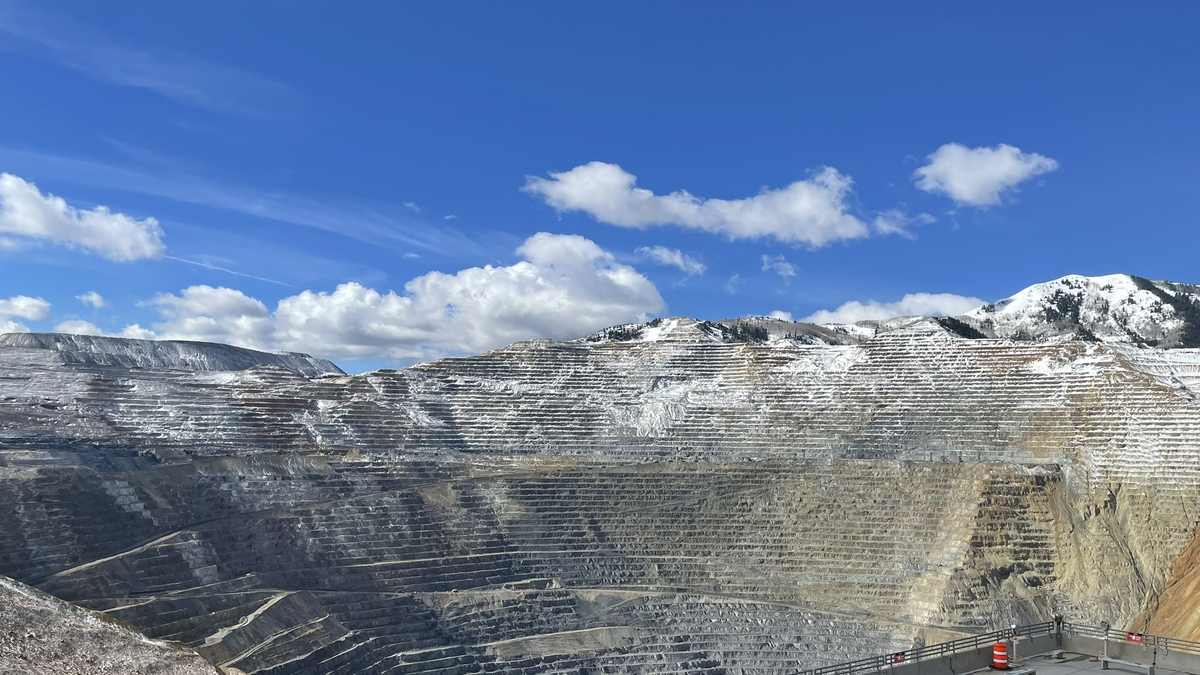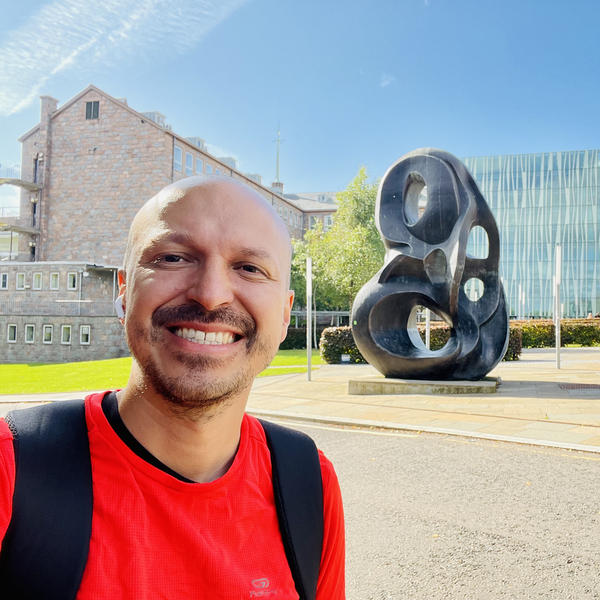Introduction
The world’s energy system is largely driven by coal, oil, and gas. However, the transition to a low-carbon future requires moving away from fossil fuels and focusing instead on essentials minerals such as cobalt, lithium, nickel, and copper for use in wind turbines, solar panels and electric vehicles.
Geothermal energy, carbon capture and storage (CCS) and hydrogen storage are also central components of the UK government’s strategy for reducing greenhouse emissions and reaching net-zero by 2050.
This programme draws on the exceptional expertise within the Department of Geology and Geophysics to equip students with the subsurface skills required for the rapidly evolving energy transition sector.
Study Information
At a Glance
- Learning Mode
- On Campus Learning
- Degree Qualification
- MSc
- Duration
- 12 months
- Study Mode
- Full Time
- Start Month
- September
- Location of Study
- Aberdeen

Our understanding of subsurface workflows and resources is critical to many of the new clean energy technologies associated with the energy transition, such as geothermal energy, carbon capture and storage (CCS) and the growing demand for critical minerals needed to produce clean technologies such as wind turbines, batteries and electric vehicles.
Aberdeen boasts a significant advantage in C02 storage technology due to the technical and commercial offshore energy skills built up over the last 50 years, the existing energy infrastructure and the unique geology of the North Sea basin. CCS alone has been recognised as a critical technology by the UK government in helping carbon-intensive industries meet their net zero goals and is central to the UK government’s Net Zero Strategy.
At the heart of this programme is a focus on developing a strong technical understanding of rocks and fluids in the subsurface, and how to model, monitor and verify their presence using geophysical, petrophysical and other techniques. This knowledge is then applied to a wide range of low carbon energy solutions including sustainable mineral extraction, geothermal flow and subsurface storage.
We place a strong focus on geoscience interpretation and the high-demand skills needed for both present-day and future energy extraction and storage scenarios. In addition, you will examine the societal implications of the energy transition, including social justice, global dynamics and sustainability goals.
This MSc draws on much of the ground-breaking research being conducted within the Centre for Energy Transition (CET), in areas such as geothermal energy, carbon capture and storage, nuclear waste storage and critical materials for the energy transition.
Watch a sample lecture by Dr Rachel Brackenridge on How Geoscientists can Contribute to the Energy Transition.
What You'll Study
- Semester 1
-
Compulsory Courses
- Geophysics and Petrophysics (GL5011)
-
30 Credit Points
By the end of this course, the student should:
- Understand the Petrophysical rock properties that affect fluid storage and movement (Porosity, Permeability, Saturation, Mineralogy).
- Understand the primary wireline and LWD logging tools: Measurement, Fundamental physical principles, and applications.
- Understand the theory of seismic signal description.
- Appreciate the main processes involved in a typical seismic data-processing suite.
- Understand the basic concepts of seismic stratigraphy and the interpretation of seismic data.
- Applied Sedimentology and Structural Geology (GL5044)
-
30 Credit Points
The course aims to develop practical geological skills applicable to the extraction and sequestration of fluids in the subsurface, embracing the subdisciplines of tectonics and structural geology together within clastic and carbonate sedimentology, stratigraphy, and diagenesis; The main basin-forming processes with be introduced to provide context for the sedimentary geology. The basics of structural geology for trap definition and characterisation are developed and applied, deducing structural styles on seismic images and examples of how deformation influences reservoir behavior and trapping mechanisms. The course will show how structural, sedimentological and stratigraphic knowledge is crucial in both exploration and development activities, and is fundamental in making predictive models. It will impart a practical knowledge of depositional environments which form hydrocarbon reservoirs and targets for CO2 sequestration, linking these together using the techniques of sequence stratigraphy as applied to siliciclastic and carbonate settings. The origin and effects of reservoir fluids and subsequent diagenesis will also be covered.
- Professional Skills Incorporating International Field Trip (GL5013)
-
15 Credit Points
By the end of this course, students will be aware of issues in relation to team work, particularly communication, diversity, and organisation. They will be able to communicate technical interpretation effectively by oral, written and electronic methods. They will utilise knowledge gained in the field and classroom to complete a number of industry-facing tasks through assessments based on real life scenarios utilising field-based data and concepts derived from lectures and field observations. These skills will be developed on two fieldtrips, one of which will focus on the exceptional geology exposed in Utah.
- Getting Started at the University of Aberdeen (PD5006)
-
This course, which is prescribed for all taught postgraduate students, is studied entirely online, takes approximately 5-6 hours to complete and can be taken in one sitting, or spread across a number of weeks.
Topics include orientation overview, equality and diversity, health, safety and cyber security and how to make the most of your time at university in relation to careers and employability.
Successful completion of this course will be recorded on your Enhanced Transcript as ‘Achieved’.
- Semester 2
-
Compulsory Courses
- Earth’s Energy Resources (GL5570)
-
15 Credit Points
This course aims to provide students with a good grounding in the role that geoscientists will play in the drive to net-zero. The course will focus on different resources the Earth can provide to support the energy transition, particularly critical economic minerals and sustainable oil and gas extraction. Lectures and Practical Exercises will introduce the skills required to evaluate a geological resource. There will be a strong focus on the sustainable, ethical and economic arguments for utilising these resources and their importance for integrated energy systems.
- Geothermal Flow (GL5571)
-
15 Credit Points
Through lectures delivered by academics and industry professionals, you will develop a general understanding of the role of fluid flow, heat transfer, and fractures in different geothermal systems. You will gain practical experience in reservoir modelling and sustainable reservoir management using industry standard computing software. During a field trip to a geothermal site, you will learn about risks and pitfalls in practice. An independent research project provides an opportunity to expand your knowledge on a representative geothermal field.
- Subsurface Storage and Sequestration (GL5572)
-
15 Credit Points
Lectures and practical exercises will provide you with the knowledge and skills to de-risk the subsurface for storage of energy (in the form of compressed air and hydrogen), and for the safe and long-term storage and sequestration of CO2. Seminars will introduce case-study examples of storage within porous rocks, evaporites and volcanics. The course concludes with a group project that is designed to emulate how a subsurface storage site would be evaluated by a technical team in industry.
- Semester 3
-
Compulsory Courses
- Projects in Energy Geoscience (GL5913)
-
60 Credit Points
In the final project you are expected to undertake and complete a study of a subsurface problem applicable to the energy industry. The project is an extended, independent, self-directed, piece of practical work integrating and reinforcing the material taught on the programme, and giving a detailed insight into the demands of, and ways of working in the energy industry. The project forms a major part of the MSc’s employability strategy.
We will endeavour to make all course options available. However, these may be subject to change - see our Student Terms and Conditions page.
| Fee category | Cost |
|---|---|
| EU / International students | £28,800 |
| Tuition Fees for 2025/26 Academic Year | |
| Self-funded international students commencing eligible postgraduate programmes in 2025/26 will receive a £8,000 tuition waiver - See full terms and conditions | |
| UK | £13,200 |
| Tuition Fees for 2025/26 Academic Year Graduates of the University of Aberdeen are eligible for the Alumni Postgraduate Scholarship, which reduces the tuition fee to £7,000, in line with the current tuition fee loan amount offered by the Student Awards Agency Scotland (SAAS). Please see the following for full terms and conditions: https://www.abdn.ac.uk/study/funding/653 | |
Fee Information
Additional Fee Information
- In exceptional circumstances there may be additional fees associated with specialist courses, for example field trips. Any additional fees for a course can be found in our Catalogue of Courses.
- For more information about tuition fees for this programme, including payment plans and our refund policy, please visit our Tuition Fees page.
Funding Opportunities
- Aberdeen Global Scholarship: Eligible self-funded international Masters students will receive the Aberdeen Global Scholarship.
Scholarships
All eligible self-funded international Postgraduate Masters students starting in September 2025 will receive an £8,000 scholarship. Learn more about this Aberdeen Global Scholarship here.
To see our full range of scholarships, visit our Funding Database.
How You'll Study
Learning Methods
- E-learning
- Field Trips
- Field Work
- Group Projects
- Individual Projects
- Lectures
- Research
- Seminars
Why Study Sustainable Energy Geoscience?
- Aberdeen is regarded as a world-leading hub for energy expertise, with organisations such as the Centre for Energy Transition, the Net Zero Technology Centre, the Energy Transition Zone, the National Decommissioning Centre and the Global Underwater Hub deploying the tremendous R&D expertise built up over the last 40 years in oil and gas to fast track the development and deployment of wind, tidal, hydrogen, geothermal, and carbon capture storage technologies.
- This MSc draws on much of the ground-breaking research being conducted within the Centre for Energy Transition and the Department of Geology and Geophysics, in our doctoral training programmes in QUADRAT and the GeoNetZero CDT and through Scottish Carbon Capture and Storage, ClimateXChange, and UKRI funding and industry partnerships.
- Field-based study is a crucial part of the teaching on all our geology-related degrees. This programme is no exception, offering a one-week field trip in the UK in Semester 1 and a two-week trip to Utah in Semester 2.
- Learn from industry experts, who bring with them the latest industry trends and techniques to ensure that what you learn on this programme is relevant to the needs of industry today.
- Complete an MSc Project dissertation on a topic of your choosing and directly contribute to research in this rapidly evolving and emerging industry.
- You will have access to the School of Geoscience’s world-class facilities and equipment and laboratories, including 3D Seismic Interpretation Facilities; ACEMAC Nano Scale Electron Microscopy and Analysis Facility; Dirty and Clean Sedimentary Laboratories; Geochemistry Laboratory; GIS Equipment; Hydrology Laboratory; Petrographic and Stereomicroscopes; Petrophysics Laboratory.
- The School of Geosciences is at the forefront of developing the latest digital technology. V3 Geo, for example, has been developed by Aberdeen geoscientists and is a bespoke public repository and viewer for 3D virtual geoscience models, with a focus on virtual geological outcrops.
- You will learn and communicate with specialists from other disciplines, in particular those involved in drilling, reservoir engineering, petrophysics, geochemistry, and geophysics.
- You will enhance your interpersonal and transferable skills relevant to the energy industry today: developing presentation and report-writing skills; working in multidisciplinary teams; creative thinking and problem-solving abilities.
Entry Requirements
Qualifications
The information below is provided as a guide only and does not guarantee entry to the University of Aberdeen.
Our minimum entry requirement for this programme is a Geology or Geophysics degree at 2:1 (upper second class) UK Honours level (or an Honours degree from a non-UK institution which is judged by the University to be of equivalent worth).
Evidence of high marks in the following key subjects is important for admission: Evidence of creative thinking, data synthesis, teamwork, problem-solving. As well as key technical geological skills.
Please enter your country or territory to view relevant entry requirements.
English Language Requirements
To study for a Postgraduate Taught degree at the University of Aberdeen it is essential that you can speak, understand, read, and write English fluently. The minimum requirements for this degree are as follows:
IELTS Academic:
OVERALL - 6.5 with: Listening - 5.5; Reading - 5.5; Speaking - 5.5; Writing - 6.0
TOEFL iBT:
OVERALL - 90 with: Listening - 17; Reading - 18; Speaking - 20; Writing - 21
PTE Academic:
OVERALL - 62 with: Listening - 59; Reading - 59; Speaking - 59; Writing - 59
Cambridge English B2 First, C1 Advanced, C2 Proficiency:
OVERALL - 176 with: Listening - 162; Reading - 162; Speaking - 162; Writing - 169
Read more about specific English Language requirements here.
Document Requirements
You will be required to supply the following documentation with your application as proof you meet the entry requirements of this degree programme. If you have not yet completed your current programme of study, then you can still apply and you can provide your Degree Certificate at a later date.
- Degree Transcript
- a full transcript showing all the subjects you studied and the marks you have achieved in your degree(s) (original & official English translation)
- Personal Statement
- a detailed personal statement explaining your motivation for this particular programme
Aberdeen Global Scholarship
Eligible self-funded Postgraduate Taught (PGT) students will receive the Aberdeen Global Scholarship. Eligibility details and further information are available on our dedicated page.
Aberdeen Global ScholarshipCareers
The MSc Sustainable Energy Geoscience equips students with the subsurface skills required for the rapidly evolving energy transition sector across multiple themes relating to energy extraction and storage. The skills-based approach will also prepare students for complementary roles such as data analytics and policy.
According to OEUK, the UK has an estimated total carbon storage capacity of 78 gigatons, one of the largest in Europe and enough to hold two centuries’ worth of the UK’s current emissions. The same report states that CCS could be worth £20bn to the offshore oil and gas supply chain in the next ten years, and £100bn by 2050
Energy companies are diversifying their portfolios to include low carbon energies and technologies such as offshore wind, hydrogen and carbon capture and storage. A number of large-scale low carbon projects are now underway in the UK and around the World, and projects are expected to expand as we move towards a net-zero economy. The UK government expects 220,000 positions will be required to support the energy transition in the UK over the next 10 years.
In addition, the growth of clean energy technologies from wind turbines and solar panels, to electric vehicles and battery storage is creating a rapidly increasing demand for critical minerals such as copper, silicon, silver, zinc, manganese, chromium, nickel, lithium, cobalt, graphite and rare earth minerals.
Career Opportunities
- Energy Policy Consultant
- Energy and Sustainability Adviser
- Environmental Data Coordinator
- Exploration Geologist
- Government Officer
- Project Geoscientist
- Technical Consultant
What our Alumni Say
Our Experts
- Programme Coordinator
- Dr Rachel Brackenridge
- Other Experts
- Professor Adrian Hartley
- Dr Tavis Potts
- Dr Clare Elizabeth Bond
Information About Staff Changes
You will be taught by a range of experts including professors, lecturers, teaching fellows and postgraduate tutors. However, these may be subject to change - see our Student Terms and Conditions page.
Get in Touch
Contact Details
- Address
-
Student Recruitment & Admissions
University of Aberdeen
University Office
Regent Walk
Aberdeen
AB24 3FX


